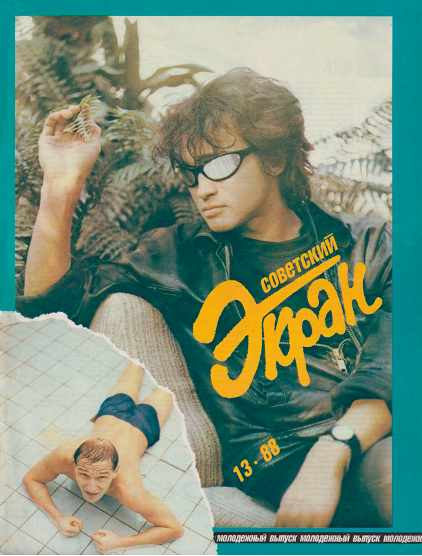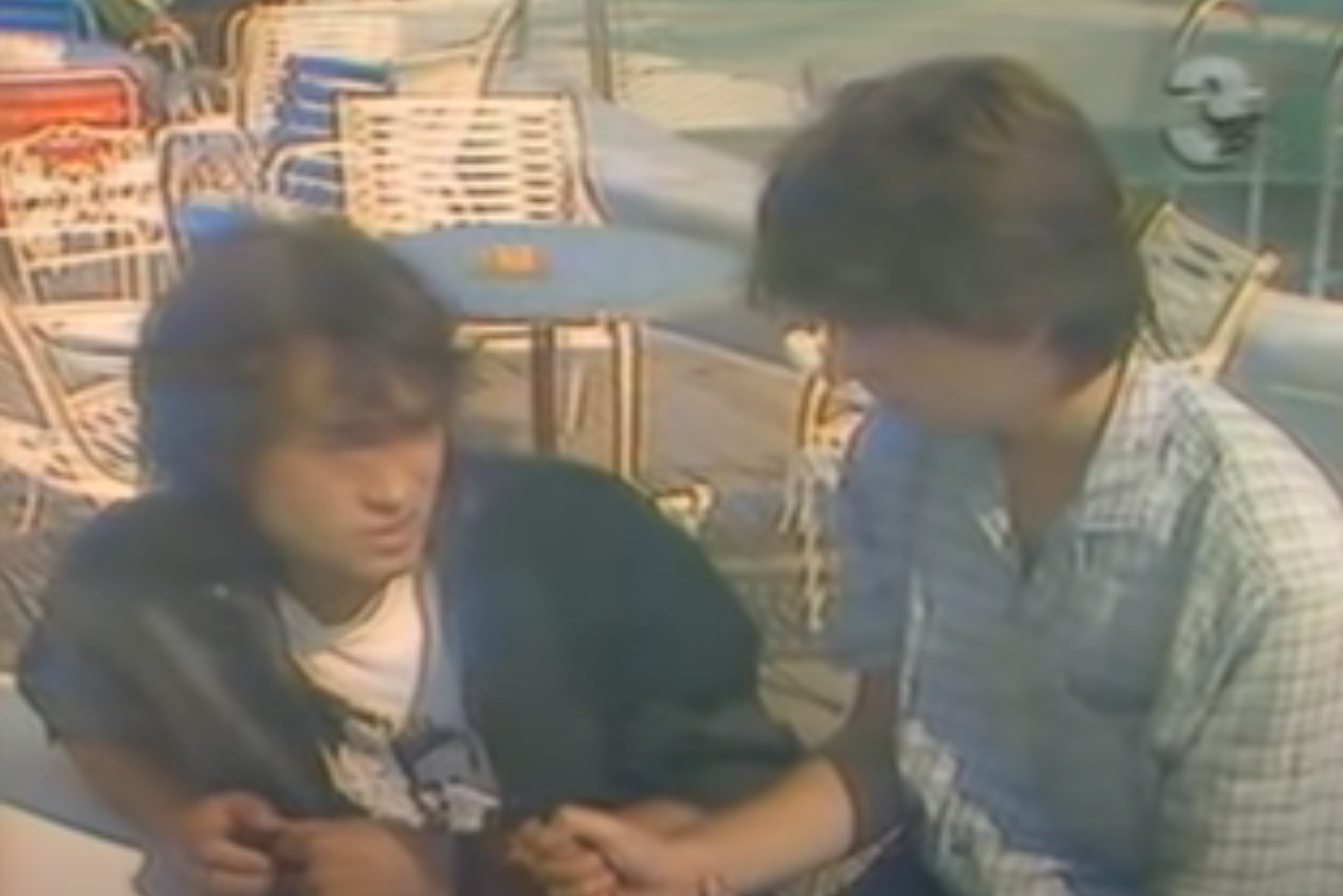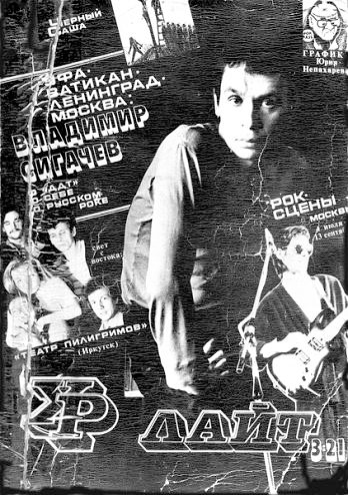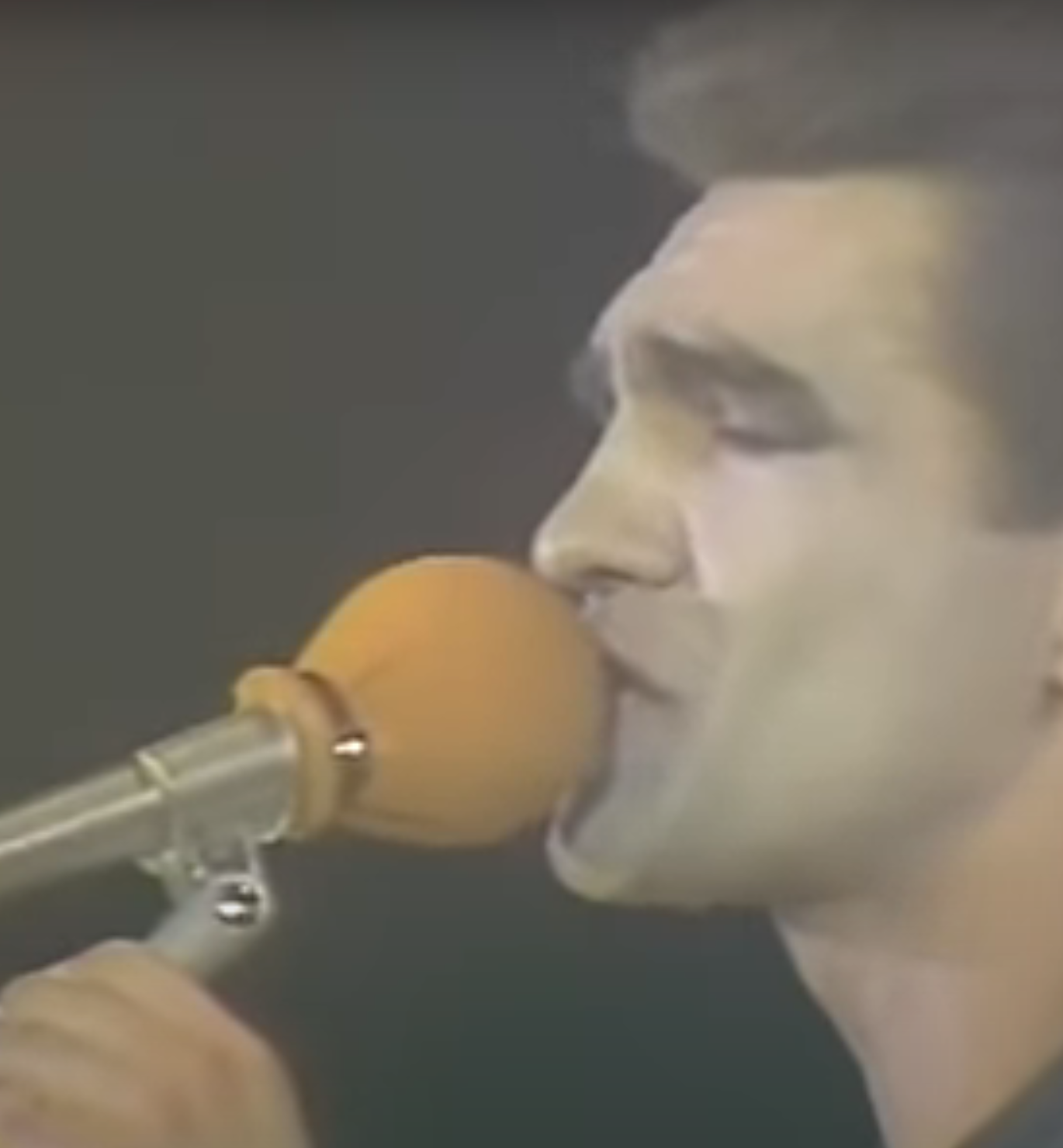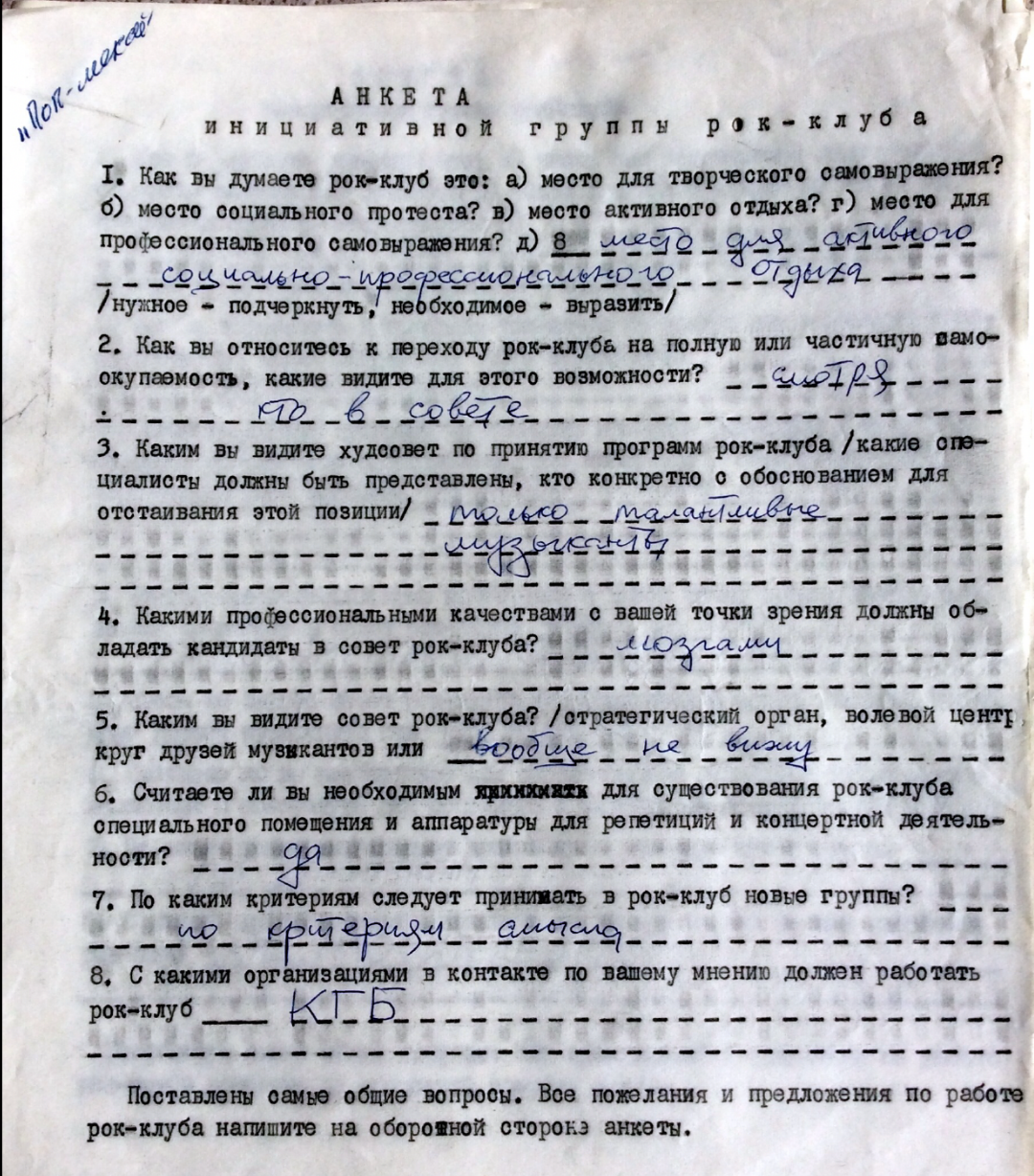“Sovetskii ekran” with Tsoi on cover, 1988
The cover image from Volume 13 (1988) of Soviet Screen (Sovetskii ekran, 1925-1998) depicts Viktor Tsoi (1962-1990) of Kino and Pyotr Mamonov (1951-2001) of the Moscow-based rock band Zvuki Mu, demonstrating how late-Soviet cinema magazines established rock musicians as cultural icons, while the film industry increasingly relied on underground rock culture for commercial content.
Viktor Tsoi interviewed at the Golden Duke Film Festival, 1988
Journalist Sergei Sholokhov (1958-) interviews rock star Viktor Tsoi (1962-1990) and film critic Natalia Razlogova (1956-) at the Golden Duke Film Festival in Odesa in September 1988.
Urlait Music Journal (Samizdat) 1985-1992 (Draft)
Moscow's samizdat music journal, which followed in the footsteps of Lenigrad's Roksi while forging a new journalistic style. The journal positioned itself to in many ways reject the Leningrad scene. Despite Moscow-based bands generally leaning towards a more avant-garde, art-rock aesthetic, Urlait made a point to promote so-called "national rock." According to Urlait's founder I. Smirnov, bands like DDT, DK, and Oblachnyi Krai (Yuri Loza) were said to be "oriented towards national problems, in opposition to estrada and the confluence of Western and domestic cultural traditions."
View Artifact
No preview available
Tusovka Music Journal (Samizdat) (Draft)
A central zine of the Siberian underground music community. One of Tusovka's central feats was duping the KGB into allowing the continuation of its publication and dissemination. Before the first issue went to print, the journal's founder Valerii Murzin took the bold step of delivering the pre-print manuscript of the journal to his local KGB office, in this way guaranteeing the publication's survival.
View Artifact
Nautilus Pompilius perform “Last Letter (Good-bye America)” in 1988
This 1988 televised performance of Nautilus Pompilius's “Last Letter” captures the band’s cultural disillusionment with Western ideals, prefiguring post-Soviet anti-Americanism.
An “initiative group survey” from the Leningrad Rock Club
This official “initiative group survey” from the Leningrad Rock Club was completed by Sergei Kuryokhin (1954-1996) of the band Pop Mekhanika sometime in the 1980s.
